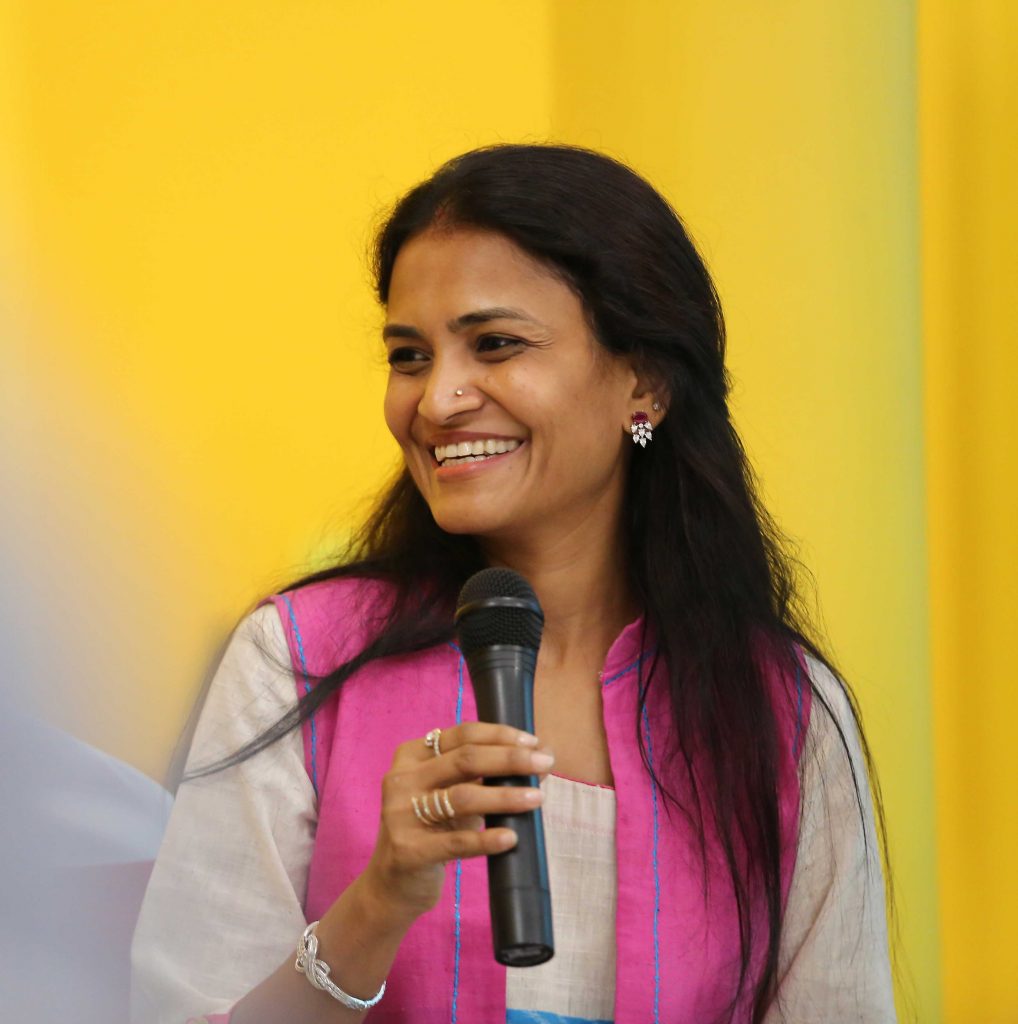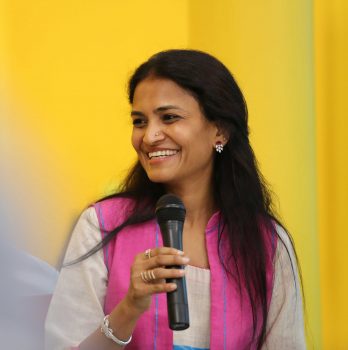Manisha Kanoria Lohia’s love for children led her to start iSpark Studio based on Montessori system of learning and traditional values to enable holistic development of children. Seojin Park finds out how…
 What was the main motive in starting the iSpark Holistic Happiness Studio?
What was the main motive in starting the iSpark Holistic Happiness Studio?
My main reason for starting the studio was my love for children. I underwent training in Montessori course, where I learned that children are also independent individuals who can think by themselves. Being a mother, I applied the theories at home and gained practical experience. I realised the importance of holistic development of a child, especially physical activity from a very young age. I wanted to make a place where, under one roof, we could have everything — something pertaining to body, something related to the mind, and nourishing the soul at the same time.
When do you feel most rewarded as the CEO and founder of iSpark?I feel rewarded when I see children coming here and enjoying themselves, telling their parents that they don’t want to go back home. That is one thing which I love, because we often see children reluctant to participate in activities. But iSpark is a place where children don’t even want to leave until the continuous calls from their parents compel them to go. Secondly, it’s also rewarding when I see children change. I remember one parent telling me that the child has suddenly started to help with the housework after coming to the studio. Children are restless, and iSpark helps channelise their energy by giving them a big place where they can run around and have freedom. We don’t confine them, and I think this is what sparks a change in them.
Your studio offers various programmes and opportunities for children, women and families. What is the most exciting part about the iSpark Studio?
We have a programme called Young Champs, in which children come after school and learn about topics related to happiness, sharing, respect and perseverance through direct experiences and stories. Apart from that, we also have a nutrition program in which our nutritionists guide the children towards healthy eating. Each child in the programme goes through a screening by the nutritionist and is educated about healthy eating habits. One of the key programmes we have here is the gym, which consists of all non-mechanical equipment requiring children to exercise based on their weight. We also celebrate all festivals, birthdays and even a child doing well in school. I think appreciation is what makes us happy and serves as a positive boost for children. Another exciting thing about iSpark is that this is a place for the entire family. While children do something, parents can also come and meditate or do other activities.
Your studio values a positive learning experience for children. What were you like when you were a child?
I was the fifth child, with four elder brothers. Being the only daughter, I was extremely loved and cherished, even now. My mother was sometimes too protective and possessive about me. However, what I remember the most about my childhood is that my mother always used tell me different stories. From our Hindu scriptures, there was a story of Meera Bai who saw Lord Krishna as her husband. By listening to the same story every night before I go to bed, I could relate to Lord Krishna from a very early age. This helped me when I grew up, as my belief in god enabled me to overcome the hardships I faced. Also, my father made sure that all of us do some physical activities like yoga and have healthy food. This is something I grew up with, making me see the importance of inculcating healthy habits in a child from a very young age.
Why do you think developing the youth in such a way is important?
Nowadays, not many children grow up with their grandparents. India has rich heritage and culture, especially because of the bonding the family members have with each other. Although there are still many such families where the children are blessed to hear stories from their grandparents, many working parents don’t have enough time, so those stories are not there anymore. So the parents often resort to gadgets such as phones to keep their children engaged. If you see our studio, it’s designed colorfully, so that as soon as they enter the studio, they don’t have any desire to see the phones.
What do you think being ‘happy’ means to children and their parents?
Children are naturally happy and they make you happy with their presence. When parents start expecting a lot from children and start comparing, they move away from happiness. I think the main idea is that parents should value their children just the way they are. Rather than compel the children to do something, exposing them to different activities will help them in identifying their core strength and be themselves. Indeed, the happy energy the children spark is what makes the place happy. If you come to iSpark, you will experience it.
